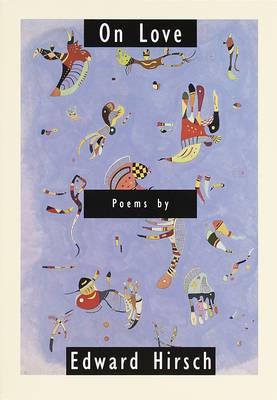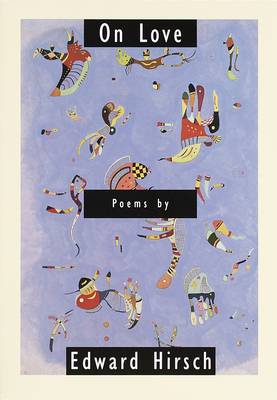
- Afhalen na 1 uur in een winkel met voorraad
- Gratis thuislevering in België vanaf € 30
- Ruim aanbod met 7 miljoen producten
- Afhalen na 1 uur in een winkel met voorraad
- Gratis thuislevering in België vanaf € 30
- Ruim aanbod met 7 miljoen producten
Zoeken
Omschrijving
"Life has to have the plenitude of art," Edward Hirsch affirms in his fifth volume of poems, On Love, which further establishes him as a major artist. From its opening epigraph by Thomas Hardy and an initiating prayer for transformation, On Love takes up the subjects of separateness and fusion, autonomy and blur. The initial progression of fifteen shapely and passionate lyrics (including a sonnet about the poet at seven, a villanelle about the loneliness of a pioneer woman on the prairie, and an elegy for Amy Clampitt) opens out into a sequence of meditations about love. These arresting love poems are spoken by a gallery of historical figures from Denis Diderot, Heinrich Heine, Charles Baudelaire, and Ralph Waldo Emerson to Gertrude Stein, Federico Garcia Lorca, Zora Neale Hurston, and Colette. Each anatomizes a different aspect of eros in poems uttered by a chorus of historical authorities that is also a lone lover's yearning voice. Personal, literary, On Love offers the most formally adept and moving poetry by the author Harold Bloom hails as utterly fresh, canonical, and necessary.
Specificaties
Betrokkenen
- Auteur(s):
- Uitgeverij:
Inhoud
- Aantal bladzijden:
- 96
- Taal:
- Engels
Eigenschappen
- Productcode (EAN):
- 9780375702600
- Verschijningsdatum:
- 25/01/2000
- Uitvoering:
- Paperback
- Formaat:
- Trade paperback (VS)
- Afmetingen:
- 140 mm x 202 mm
- Gewicht:
- 127 g

Alleen bij Standaard Boekhandel
+ 39 punten op je klantenkaart van Standaard Boekhandel
Beoordelingen
We publiceren alleen reviews die voldoen aan de voorwaarden voor reviews. Bekijk onze voorwaarden voor reviews.











